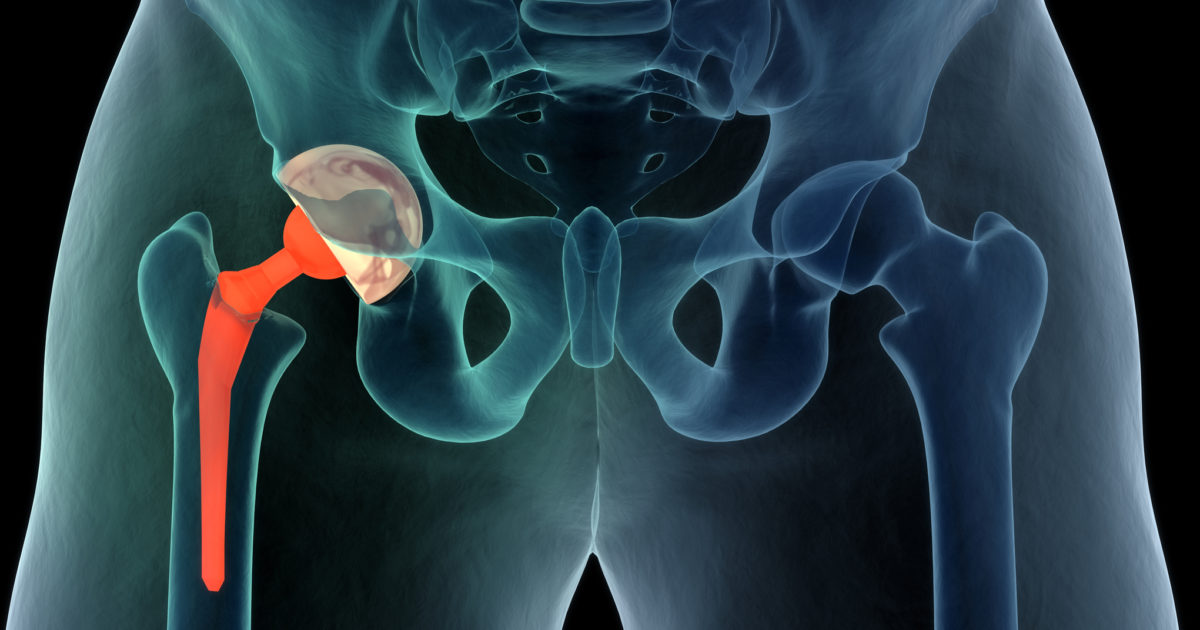Total Hip replacement Surgery in Hyderabad
During hip replacement, a surgeon removes the damaged sections of your hip joint and replaces them with parts usually constructed of metal, ceramic and very hard plastic. This artificial joint (prosthesis) helps reduce pain and improve function.
Also called total hip arthroplasty, hip replacement surgery in Hyderabad might be an option for you if your hip pain interferes with daily activities and nonsurgical treatments haven't helped or are no longer effective. Arthritis damage is the most common reason to need hip replacement.

Joint Replacement
Why it's done
Conditions that can damage the hip joint, sometimes making hip replacement surgery necessary, include:
You might consider hip replacement if you have hip pain that:
Risks
Risks associated with hip replacement surgery can include:
Need for second hip replacement
Your prosthetic hip joint might wear out eventually, especially if you have hip replacement surgery when you're relatively young and active. Then you might need a second hip replacement. However, new materials are making implants last longer.
How you prepare
Before surgery you'll meet with your orthopedic surgeon for an exam. The surgeon will:
During this preoperative evaluation is a good time for you to ask questions about the procedure. Be sure to find out which medications you should avoid or continue to take in the week before surgery.
Because tobacco use can interfere with healing, stop using tobacco products for at least a month before surgery and for at least two months after surgery. If you need help to quit, talk to your doctor.
Don't have dental work, including teeth cleaning, two weeks before surgery.
What you can expect
When you check in for your surgery, you'll be asked to remove your clothes and put on a hospital gown. You'll be given either a spinal block, which numbs the lower half of your body, or a general anesthetic.
Your surgeon might also give you a nerve block by injecting an anesthetic around nerves or in and around the joint to help block pain after your surgery.
During the procedure
The surgical procedure takes a few hours. To perform a hip replacement, your surgeon:
Techniques for hip replacement are constantly evolving. Surgeons continue to develop less invasive surgical techniques, which might reduce recovery time and pain.
After the procedure
After surgery, you'll be moved to a recovery area for a few hours while your anesthesia wears off. Medical staff will monitor your blood pressure, pulse, alertness, pain or comfort level, and your need for medications.
How long you stay after surgery depends on your individual needs. Many people can go home that same day. You'll be asked to breathe deeply, cough or blow into a device to help keep fluid out of your lungs.
Blood clot prevention
After your surgery, you'll be at increased risk of blood clots in your legs. Possible measures to prevent this complication include:
Physical therapy
A physical therapist might help you with exercises you can do in the hospital and at home to speed recovery.
Activity and exercise must be a regular part of your day to regain the use of your joint and muscles. Your physical therapist will recommend strengthening and mobility exercises and will help you learn how to use a walking aid, such as a walker, a cane or crutches. As therapy progresses, you'll usually increase the weight you put on your leg until you're able to walk without assistance.
Home recovery and follow-up care
Before you leave the hospital, you and your caregivers will get tips on caring for your new hip. For a smooth transition:
Six to 12 weeks after surgery, you'll have a follow-up appointment with your surgeon to make sure your hip is healing properly. If recovery is progressing well, most people resume at least some version of their normal activities by this time. Further recovery with improving strength will often occur for six to 12 months.
Results
Expect your new hip joint to reduce the pain you felt before your surgery and increase the range of motion in your joint. But don't expect to do everything you could do before the hip became painful.
High-impact activities — such as running or playing basketball — might be too stressful on your artificial joint. But in time, you might be able to swim, play golf, hike or ride a bike comfortably.
About Doctor:
Dr.KHALEELULLAH is a renowned gold medal award-winning Orthopaedician in Hyderabad. He has got extensive experience of more than 15 years and positioned himself as the best orthopedic surgeon in Telangana and Andhra Pradesh. He worked for nearly 8 years in the prestigious Nizams Institute of Medical Sciences(NIMS), Hyderabad where he acquired vast skills and knowledge about managing complicated orthopedic problems. He proved himself as the right Ortho Surgeon with MCH specialization with his deep interest in the area of joint reconstruction surgeries.

